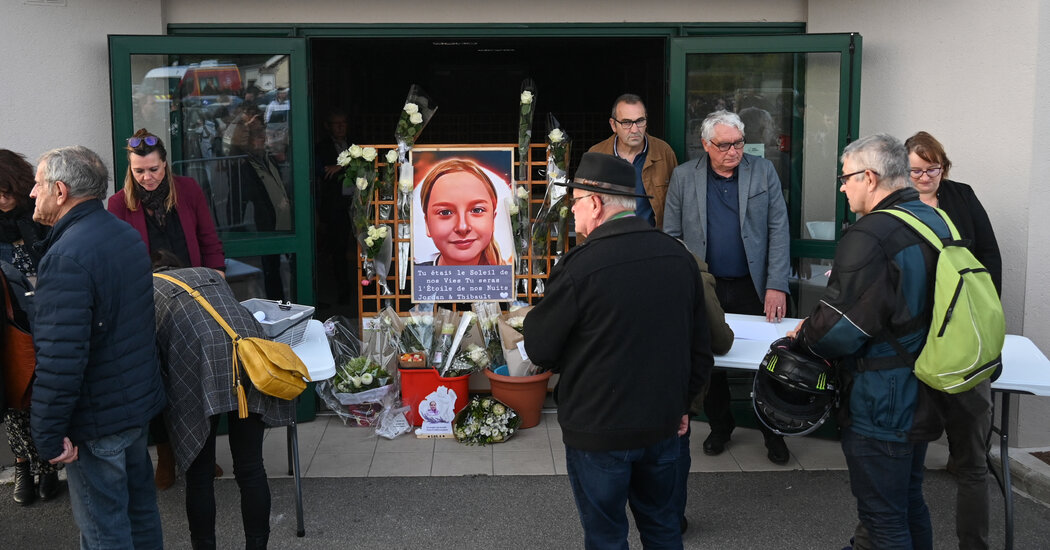A court in Paris sentenced an Algerian woman to life in prison on Friday for the rape, torture and murder of Lola Daviet, a 12-year old schoolgirl whose killing three years ago shocked France and bolstered anti-immigrant sentiment.
Dahbia Benkired, 27, is the first woman in France to receive a sentence of life imprisonment, the harshest penalty in the French Criminal Code since capital punishment was abolished in 1981. Life terms have been imposed only in extremely rare cases, like those of the serial killer Michel Fourniret and of Salah Abdeslam, the sole survivor among the Islamic state extremists who committed the November 2015 terrorist attack in Paris.
The murder of the child, whose mutilated body was found in a plastic trunk outside the building where both she and Ms. Benkired lived in northeastern Paris, sent shockwaves through the country.
At the time Ms. Benkired was struggling to get by and partly living with her sister, in a building where the superintendents were Lola’s parents. On the evening of October 14, 2022, she lured the schoolgirl to her apartment and raped her, mutilated her and suffocated her with duct tape.
“Even if this won’t bring my Lola back, we believed in justice and we got it, we got it,” said Lola’s mother, in tears, speaking to reporters outside the courtroom. “Thank you,” she added.
The crime sparked additional outrage among right-wing politicians who lashed out at France’s sluggish deportation process, after it was revealed that Ms. Benkired was an undocumented immigrant who had been ordered by the French authorities to leave the country two months earlier.
“By applying the most severe punishment provided for in the criminal code, the justice system has not shirked its responsibilities,” Marine Le Pen, the leader of the far-right National Rally party, wrote on social media after news of the verdict came out.
“To protect society from these predators, we must go further: life imprisonment for the perpetrators of these barbaric crimes, followed by the systematic deportation of foreign criminal offenders,” she added.
Testifying during the painful, weeklong trial, Ms. Benkired did not deny committing the crime, but when prodded by the court, failed to explain her actions. Medical experts who examined her during her pretrial detention warned that she remained a danger to others.
The life sentence had been requested by the prosecutor in charge of the case.
Under French law, a life sentence may be adjusted, under very strict conditions, after thirty years.
Ségolène Le Stradic is a reporter and researcher covering France.
The post In a First for a Woman in France, Life Sentence Imposed for Murder of Schoolgirl appeared first on New York Times.




